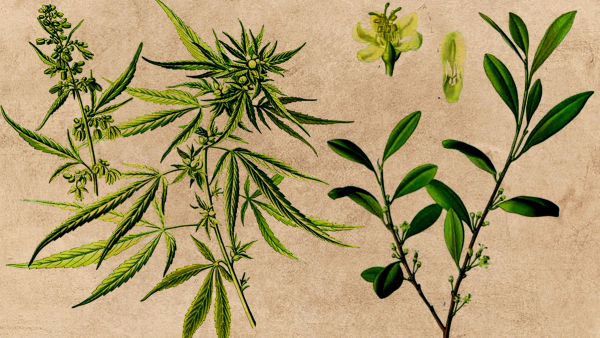Cannabis and coca leaf top UN drugs commission agenda
Cannabis legalization and the classification of coca leaf were among the most prominent topics of discussion at the 66th session of the UN Commission on Narcotic Drugs (CND). In a context of shrinking consensus among member states, there is a clear need for expert-led discussion of illicit drug markets and drug policies as the 2024 policy review looms.
The 66th session of the UN’s annual CND, which took place in Vienna during the week of 13 March, highlighted many of the continuing trends in global drug policy while bringing new issues to the fore. Particular attention was given to cannabis legalisation, the classification of coca leaf under international law, sustainable development-based approaches to drug policy, the ‘southern route’ out of Afghanistan, and civil society engagement and human rights.
The session was chaired by the Colombian ambassador in Vienna, Miguel Camilo Ruiz Blanco, and its main political outcome was to pave the way for next year’s review of international drug policy commitments, through the agreement of a modalities resolution for the meeting. Colombian support for Bolivia’s call for coca leaf to be removed from the UN’s drug control treaties was the highest-profile intervention of the week. Changing drug markets, politics and priorities in Colombia and across Latin America (and the broader Americas) were therefore centre stage. At the same time, much-needed attention was given to illicit drug markets and their harms in other regions – in particular, Afghanistan and the ‘southern route’ to East and southern Africa.
The CND also agreed to place seven new substances under international control, and adopted three substantive resolutions (on handling of synthetic drugs, ‘alternative development’ and information sharing in support of the international drug control system). The session therefore maintained the status quo on how to approach international drug policy, through ongoing scheduling of substances under the drug conventions (i.e. requiring regulations and prohibition), resolutions aimed at international cooperation and an ongoing recognition of the drug conventions’ central role. Indeed, the modalities resolution adopted maintained that the drug conventions are ‘the cornerstone of the international drug control system’.
The speeches made in plenary and side events demonstrated the increasing rhetorical gap between the formal decisions taken during the CND and the reality of national drug positions. The growing list of countries that have relaxed cannabis legislation in recent years – including major economies such as Canada and the US, and Latin American and African states that have introduced reforms for non-medical and non-scientific uses – has challenged the coherence of the UN’s regime. Perhaps unsurprisingly, the International Narcotics Control Board (INCB), charged with monitoring implementation of the various treaties, came out strongly against broad legalization, with a negative assessment of cannabis legalization published in its 2022 annual report. The INCB maintains the view that cannabis legalization, for non-medical or non-scientific use, contravenes the conventions, and claims that legalization has not achieved the aims set out by governments of reducing criminality and generating tax revenue. Others challenged this assessment, highlighting that it is either too early to tell or that the harms of prohibition outweigh any societal benefits.
Given these ongoing tensions, it was striking that Bolivia and Colombia chose this CND to call for the removal of international restrictions on coca leaf. Like cannabis, coca leaf has widespread ramifications for the drug conventions, given its integral role in the 1961 convention text. Yet Bolivian vice president David Choquehuanca made an impassioned plea for the ‘liberation’ of the coca leaf.
Cannabis and coca are set to be points of discussion at next year’s mid-term review of UN drug policy commitments, as required under the 2016 UN General Assembly Special Session on Drugs (UNGASS). Also needed is a thorough debate on the role of addressing illicit markets in shaping drug policy. As attitudes have slowly but now fundamentally shifted in Europe and Latin America towards a more human rights- and health-centred approach, it remains to be seen how countries will change their approach to tackling illicit drug trafficking, and how to determine whether new policies are having the intended effects on illicit markets.
